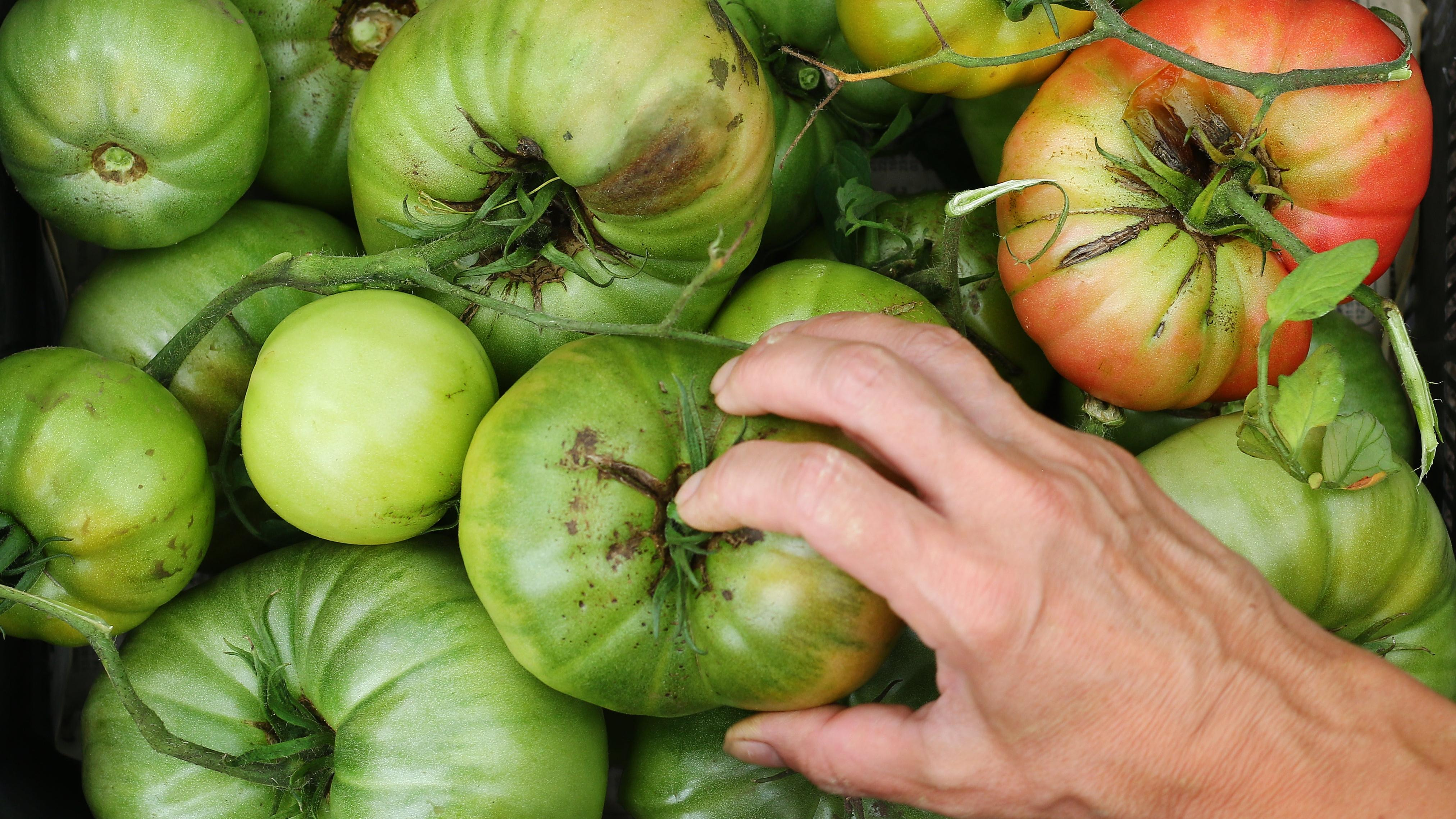Another Supermarket Is Selling 'Ugly' Produce
These trendy services are encouraging us not to judge a peach by its cover.
"Ugly" versus "pretty" sounds like an odd distinction to apply to foods that will all look more or less the same in your stomach, but of course we're more likely to pick up the perfectly round tomato before reaching for the one that's a little lopsided. It turns out that this predictable consumer behavior has led to the creation of an entire category of the grocery industry.
Companies like Imperfect Foods and Misfits Market center their entire business on reducing food waste by selling the produce consumers usually pass over, often at a competitive price. Now, Supermarket News reports that Sprouts Farmers Market, an organic and natural foods retailer with locations in 23 states, recently joined this "ugly" produce space with its own pilot program, Rescued Organic.
The program will run in Sprouts' 130 California locations, beginning with discounted varieties of local produce including "misshapen, under or over-size, or slightly off color" potatoes, onions, grapefruit, lemons, oranges, pears, carrots, kiwi, and bell peppers.
Despite the grocery chain's eagerness to join the ranks of other "ugly" produce contenders, the industry is not without its challenges. Consumer Reports notes that in 2016, Whole Foods Market, Walmart, and Hy-Vee all began putting effort into selling imperfect fruits and vegetables. The grocers created displays and attempted to showcase to customers that the quality of this produce was not inferior. Unfortunately, these programs lost steam when it proved too difficult to teach shoppers to trust food that doesn't look the way they expect it to.
Sprouts noted to Supermarket News that the inability to sell imperfect produce is a challenge for farmers. A recent study from University of British Columbia Sauder School of Business found that people assume "ugly" produce is less nutritious and less delicious than its better looking counterparts; as a result, this "cosmetically challenged" produce often never makes it to grocery stores. For this and many other reasons, the USDA estimates that as much as 30% of the U.S. food supply goes uneaten.
Despite the popularity of these programs, some skeptics say that the "ugly" produce movement is more of a business opportunity than a way to save the world from food waste. Crop scientist Sarah Taber spoke with Vox in 2019 about Misfits Market and Imperfect Produce, explaining that unsold fruits and vegetables aren't always "wasted." When plowed back into soil, for example, it can enrich the field for future crops.
"A lot of ugly produce ends up being fed to animals when there's no human market for it," Taber told Vox. "Melons, for example... are fed to cattle and pigs, but then you have people going, 'Oh, my god, it's wasted!' But somebody ate it. So is that really waste? No."
Still, many consumers are happy to accept the "imperfections" of their groceries, because those flaws have no effect on the taste or quality of the produce. The UBC School of Business study also shows that the word "ugly" makes shoppers more aware of their own bias and helps them to realize that, most of the time, the differences between ugly fruit and "pretty" fruit are purely aesthetic.
Remember, the vast majority of produce we buy is going to get mashed, chopped, peeled, baked, boiled, grilled, or put through a thousand other potential preparations before we eat it. By the time it's plated, it's not going to look the way it did when it was harvested. Even if you don't invest in ugly produce crates, it's a nice goal for all of us to become slightly less picky about our produce.
